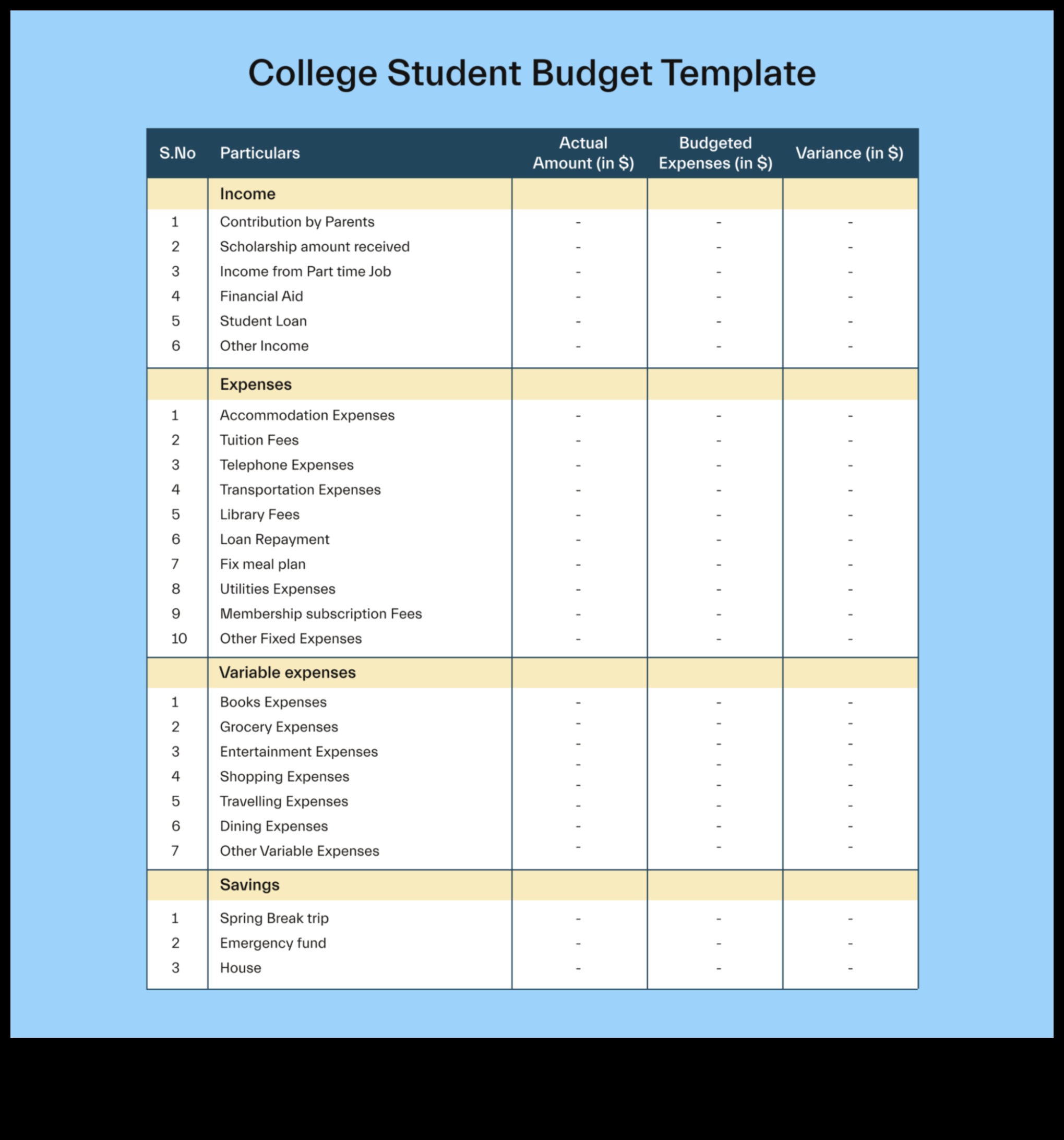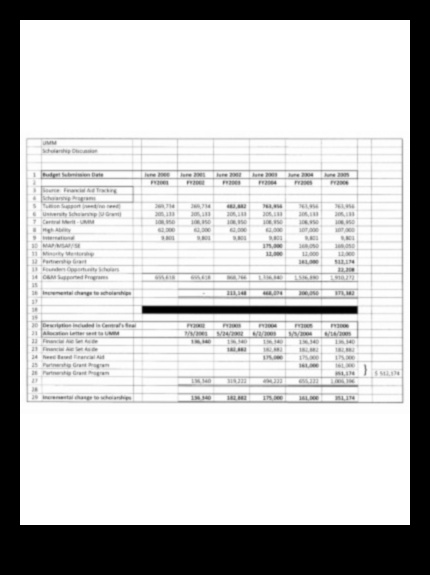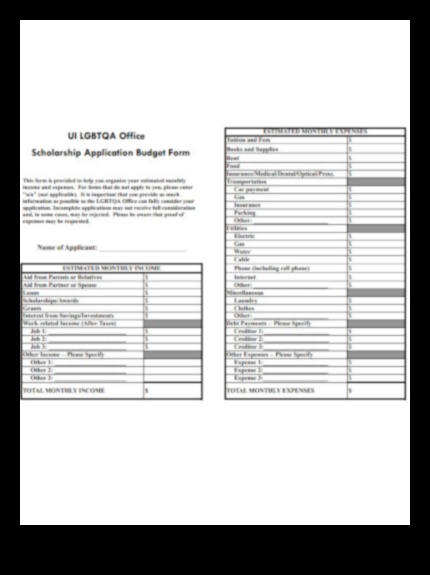
Can You Get Scholarships While in College?
Yes, you can get scholarships while you are in college. There are many different types of scholarships available, and they can help you cover the cost of tuition, books, and living expenses.
To find scholarships, you can search online, ask your guidance counselor, or talk to your professors. You can also apply for scholarships through your college or university.
When you apply for a scholarship, you will need to submit a written application and sometimes an essay. You may also need to provide transcripts, letters of recommendation, and other supporting documents.
The amount of money you can earn from scholarships varies depending on the scholarship. Some scholarships are only a few hundred dollars, while others can be worth thousands of dollars.
Scholarships can be a great way to help pay for college. If you are eligible for a scholarship, it is worth applying for it.
Here are some tips for getting scholarships while you are in college:
- Start early. The sooner you start applying for scholarships, the more scholarships you will be eligible for.
- Do your research. There are many different types of scholarships available, so it is important to do your research and find scholarships that you are eligible for.
- Write a strong application. When you apply for a scholarship, you will need to submit a written application. It is important to take your time and write a strong application that will impress the scholarship committee.
- Get letters of recommendation. If you are applying for a scholarship that requires letters of recommendation, it is important to get letters from people who know you well and can speak to your academic achievements and character.
- Submit your application on time. When you apply for a scholarship, it is important to submit your application on time. Most scholarships have deadlines, so be sure to check the deadline and submit your application well in advance.
Getting scholarships while you are in college can help you cover the cost of tuition, books, and living expenses. By following these tips, you can increase your chances of getting scholarships and getting the financial help you need to pay for college.
| Feature | Answer |
|---|---|
| College scholarships | Information on how to get scholarships while in college |
| Financial aid for college | Information on other financial aid options for college |
| Apply for scholarships | Tips on how to apply for scholarships |
| Scholarship search | Tools to help you find scholarships |
| Types of scholarships | Information on the different types of scholarships available |

II. Types of Scholarships
There are many different types of scholarships available, each with its own set of criteria. Some of the most common types of scholarships include:
Academic scholarships are awarded based on a student’s academic achievements, such as their GPA or class rank.
Athletic scholarships are awarded to students who participate in sports.
Art scholarships are awarded to students who demonstrate artistic talent.
Music scholarships are awarded to students who demonstrate musical talent.
Leadership scholarships are awarded to students who demonstrate leadership skills.
Service scholarships are awarded to students who have a history of community service.
Ethnic scholarships are awarded to students who are members of a particular ethnic group.
Financial need scholarships are awarded to students who demonstrate financial need.
Each scholarship has its own set of criteria, so it is important to read the scholarship description carefully before you apply. You should also make sure that you meet all of the eligibility requirements.
In addition to the types of scholarships listed above, there are also a number of other scholarships that are available. For example, there are scholarships for students who are interested in specific fields of study, such as science, math, or engineering. There are also scholarships for students who are from specific geographic areas or who have a particular family background.
If you are looking for a scholarship, it is important to do your research and find scholarships that are a good fit for you. There are a number of resources available to help you find scholarships, such as scholarship directories, online scholarship search engines, and scholarship search websites.
III. How to Find Scholarships
There are a number of ways to find scholarships, including:
- Search online scholarship databases
- Contact your college or university financial aid office
- Ask your teachers, guidance counselors, or other school officials
- Check your local library for scholarship directories
- Subscribe to scholarship newsletters
- Follow scholarship-related organizations on social media
- Attend scholarship fairs
When searching for scholarships, it is important to be specific about your interests and qualifications. This will help you narrow down the list of scholarships that you are eligible for.
It is also important to start your search early. Many scholarships have deadlines that are months or even years in advance.
Finally, be sure to read the eligibility requirements and application instructions carefully before you submit your application.
4. Can You Get Scholarships While in College?
Yes, you can get scholarships while you are in college. There are many different types of scholarships available, and they can be awarded for a variety of reasons, such as academic achievement, financial need, or extracurricular activities.
To find scholarships, you can search online, talk to your academic advisor, or contact your college’s financial aid office. You can also apply for scholarships through the FAFSA (Free Application for Federal Student Aid).
When applying for scholarships, it is important to follow the instructions carefully and to submit your application on time. You should also make sure to highlight your strengths and achievements in your application materials.
Getting a scholarship can help you pay for college and can also make your college experience more rewarding. If you are interested in getting scholarships, be sure to do your research and apply for as many scholarships as you qualify for.

V. FAFSA and Other Financial Aid
The FAFSA is the Free Application for Federal Student Aid, and it is the first step in applying for financial aid from the federal government. The FAFSA is used to determine your eligibility for federal grants, loans, and work-study programs. You can submit the FAFSA online at studentaid.gov/fafsa.
In addition to federal financial aid, there are also a number of state and private scholarships and grants available. You can find information about these programs on the College Board website at collegeboard.org/scholarships.
If you are having trouble paying for college, you may also want to consider taking out a student loan. Student loans are a type of credit that is specifically designed to help students pay for college. You can learn more about student loans at studentaid.gov/loans.

6. Scholarship Deadlines
Scholarship deadlines vary, so it is important to be aware of the deadlines for the scholarships you are interested in. Some scholarships have early deadlines, while others have later deadlines. It is important to submit your application well in advance of the deadline to give yourself plenty of time to proofread and revise your application materials.
You can find scholarship deadlines on the scholarship website or in the scholarship announcement. If you are not sure when a scholarship deadline is, it is always better to err on the side of caution and submit your application early.
Here are some tips for remembering scholarship deadlines:
- Create a calendar or spreadsheet of all the scholarship deadlines you are interested in.
- Set reminders on your phone or computer for the scholarship deadlines.
- Ask a friend or family member to help you keep track of the deadlines.
By following these tips, you can increase your chances of being awarded a scholarship while you are in college.

VII. Common Scholarship Mistakes to Avoid
There are a number of common mistakes that students make when applying for scholarships. Avoiding these mistakes can help you increase your chances of being awarded a scholarship.
- Not starting early
- Not doing your research
- Not writing a strong personal statement
- Not proofreading your application
- Not following up
In the following paragraphs, we will discuss each of these mistakes in more detail and provide tips on how to avoid them.
Not Starting Early
One of the biggest mistakes that students make is not starting their scholarship search early. The sooner you start, the more time you will have to research scholarships, find ones that you qualify for, and write strong applications.
Many scholarships have deadlines that are months or even a year in advance. If you wait until the last minute to start your search, you will be competing with students who have already been working on their applications for months. This will put you at a disadvantage and make it less likely that you will be awarded a scholarship.
To avoid this mistake, start your scholarship search as early as possible. This will give you plenty of time to research scholarships, find ones that you qualify for, and write strong applications.
Not Doing Your Research
Another common mistake that students make is not doing their research before applying for scholarships. This means not knowing what the scholarship is about, who is eligible to apply, and what the application requirements are.
When you are applying for a scholarship, it is important to take the time to read the scholarship description carefully. This will help you to make sure that you are eligible to apply and that you understand what the scholarship is about. It will also help you to tailor your application to the specific requirements of the scholarship.
If you do not do your research, you are more likely to make mistakes on your application, which could disqualify you from consideration. You are also more likely to submit an application that is not tailored to the specific requirements of the scholarship, which could reduce your chances of being awarded the scholarship.
Not Writing a Strong Personal Statement
The personal statement is one of the most important parts of your scholarship application. This is your chance to show the scholarship committee who you are and why you deserve to be awarded the scholarship.
A strong personal statement should be well-written, well-organized, and persuasive. It should also be tailored to the specific scholarship that you are applying for.
If you do not take the time to write a strong personal statement, you are more likely to be disqualified from consideration. You are also more likely to submit an application that does not stand out from the competition.
Not Proofreading Your Application
Before you submit your scholarship application, it is important to proofread it carefully. This means checking for errors in grammar, spelling, and punctuation. It also means making sure that your application is well-organized and easy to read.
A sloppy application will not make a good impression on the scholarship committee. It will also make it more difficult for them to evaluate your application.
To avoid this mistake, take the time to proofread your application carefully before you submit it. This will help you to identify any errors and make sure that your application is in the best possible shape.
Not Following Up
After you have submitted your scholarship application, it is important to follow up with the scholarship committee. This means sending a thank-you note and letting them know that you are still interested in the scholarship.
Following up shows the scholarship committee that you are serious about the scholarship and that you are excited about the opportunity. It also gives them a chance to ask you any questions that they may have about your application.
To avoid this mistake, send a thank-you note to the scholarship committee within a few days of submitting your application. This will show them that you are polite and that you appreciate their time. It will also give them a chance to ask you any questions that they may have about your application.
Scholarship Deadlines
Scholarship deadlines vary depending on the scholarship, but most scholarships have deadlines in the fall or spring. It is important to be aware of the deadlines for the scholarships you are interested in so that you can submit your application on time.
Some scholarships have rolling deadlines, which means that applications are accepted on a rolling basis until the scholarship is awarded. Other scholarships have a specific deadline, which means that all applications must be submitted by a certain date.
It is important to read the scholarship announcement carefully to find out the deadline for the scholarship. If you are unsure about the deadline, you can always contact the scholarship sponsor to inquire.
Here are some tips for meeting scholarship deadlines:
- Create a calendar or spreadsheet of all the scholarship deadlines you are interested in.
- Set reminders for yourself so that you don’t forget about any deadlines.
- Start working on your scholarship applications early.
- Proofread your applications carefully before submitting them.
By following these tips, you can increase your chances of meeting scholarship deadlines and being awarded a scholarship.
IX. Scholarship Resources
There are a number of resources available to help you find and apply for scholarships. Here are a few of the most helpful:
- Fastweb: Fastweb is a free scholarship search engine that provides access to thousands of scholarships from across the country.
- Scholarships.com: Scholarships.com is another free scholarship search engine that offers a variety of tools and resources to help you find and apply for scholarships.
- College Board: The College Board offers a variety of resources on financial aid, including a scholarship search engine.
- FinAid: FinAid is a nonprofit organization that provides free information on financial aid, including a scholarship search engine.
In addition to these online resources, you can also find scholarships through your school’s financial aid office, your local library, and community organizations.
FAQ
Q: What are the different types of scholarships?
A: There are many different types of scholarships available, including:
- Academic scholarships
- Athletic scholarships
- Need-based scholarships
- Merit-based scholarships
- Ethnic scholarships
- Religious scholarships
- Club or organization scholarships
- Company or employer scholarships
Q: How do I find scholarships?
A: There are many ways to find scholarships, including:
- Online scholarship search engines
- College and university websites
- High school guidance counselors
- Local libraries
- Community organizations
- Employers
- Family and friends
Q: How do I apply for scholarships?
A: The application process for scholarships varies, but generally includes the following steps:
- Find a scholarship that you’re eligible for.
- Read the scholarship rules and requirements carefully.
- Complete the scholarship application form.
- Submit the application form and any required materials by the deadline.